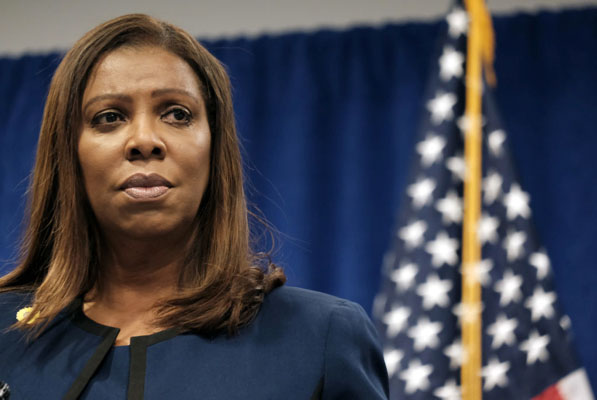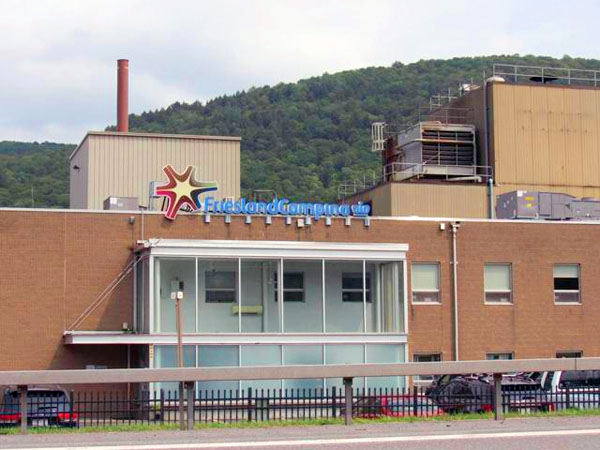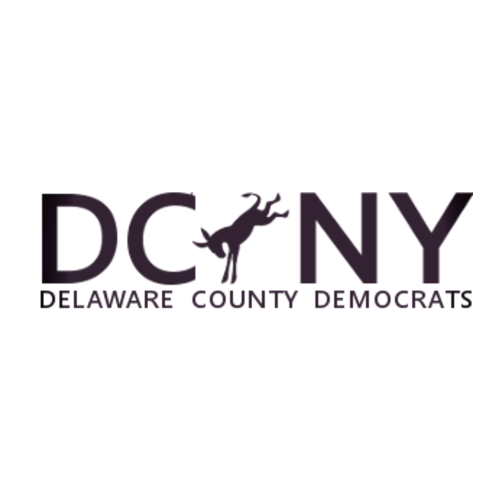
FOR IMMEDIATE RELEASE:
August 3, 2023
Joint Settlement with the Federal Government Will Require FrieslandCampina to Drastically Cut Air and Water Pollution in Delaware County
NEW YORK – New York Attorney General Letitia James and New York State Department of Environmental Conservation (DEC) Commissioner Basil Seggos today announced a settlement with FrieslandCampina Ingredients North America, Inc. (Friesland) over numerous violations of state and federal environmental laws at its facility in Delhi, New York. For years, Friesland’s manufacturing facility was emitting dangerous air and water pollution into the surrounding community, putting public health at risk. The proposed consent decree, reached with the U.S. Environmental Protection Agency, the U.S. Department of Justice, and the state of New York, requires Friesland to come into full compliance with environmental protection laws and pay a penalty of $2.88 million. New York will receive $1.44 million to fund projects that benefit public health and the environment in the Delhi area.
“Every New Yorker has a fundamental right to clean air and water, and companies have a fundamental obligation to protect public health and the environment wherever they operate,” said Attorney General James. “For years, FrieslandCampina ignored their obligation and the law, and as a result, put New Yorkers at substantial risk. This settlement reflects my office’s continuing commitment to protecting the environment and holding those who break our environmental and public health laws fully accountable. I want to thank the Department of Justice and the New York Department of Environmental Conservation for their continued partnership in this effort.”
“DEC is committed to ensuring the safety of New York’s air and water for all and will continue to work hand-in-hand with our state and federal partners to hold those who violate our strict environmental laws accountable,” said Commissioner Seggos. “Thanks to the partnership with Attorney General James, U.S. Environmental Protection Agency, and the U.S. Department of Justice, this joint enforcement action and substantial penalty will require FrieslandCampina to improve its operations, protect Delhi residents, and fund projects that will benefit the environment in the surrounding community.”
Despite being a major emitter of toluene — a toxic chemical listed as a hazardous air pollutant under the federal Clean Air Act — Friesland violated both the Clean Air Act and state laws by, among other things, failing to accurately report these emissions, failing to obtain the proper air permits for them, and failing to install necessary technologies to limit the air releases of toluene. Exposure to toluene can damage the nervous system and harm kidney, liver, and immune function. Toluene emissions also contribute to the formation of ground-level ozone, or “smog,” and are harmful to public health and the environment.

Photo by Vicky Klukkert, The Daily Star
Friesland’s water discharges also routinely violated the federal Clean Water Act by containing pollutants at levels that threatened drinking water supplies and the local aquatic environment. On multiple occasions, the facility discharged cooling water at temperatures that exceeded limits in its New York-issued permit and introduced untreated pollutants into the Village of Delhi’s wastewater treatment plant in quantities that can pass through or interfere with treatment. All these discharges were released, either directly or indirectly, to the West Branch of the Delaware River — a world-class wild trout fishery and part of the New York City water supply system.
As a result of state and federal governments’ enforcement action, Friesland has already completed approximately $6 million of work to come into compliance with its requirements under state and federal environmental law. This includes installing equipment to reduce toluene emissions by 95 percent and upgrading treatment of its process wastewaters. In today’s settlement, Friesland committed to spend an additional roughly $1.44 million to help reduce the company’s discharges of heated water into the West Branch of the Delaware River by 85 percent.
Attorney General James and Commissioner Seggos thank the U.S. Environmental Protection Agency and Department of Justice for their collaboration and partnership on this matter.
Attorney General James has been a leader in fighting to protect New Yorkers’ access to clean water and a clean environment. She recently joined a bipartisan, multistate coalition opposing a proposed settlement with 3M for contaminating drinking water supplies. This past February, Attorney General James obtained a preliminary injunction against an aggregate manufacturing and hazardous waste incineration facility requiring the facility to install a dust control system to prevent harmful air emissions of microscopic particles and crystalline silica. This past March, Attorney General James led a lawsuit with DEC Commissioner Seggos against 29 New York companies for illegally dumping waste. In May 2022, Attorney General James brought a lawsuit against three New York City bus companies for violating city and state bus idling laws and causing significant air pollution. In May 2020, Attorney General James led a coalition of nine attorneys general to sue the Trump administration for limiting enforcement of environmental protection laws.
This matter is being handled by Affirmative Litigation Section Chief Morgan A. Costello of the Environmental Protection Bureau, under the supervision of Bureau Chief Lemuel M. Srolovic. The Environmental Protection Bureau is a part of the Division for Social Justice, which is led by Chief Deputy Attorney General Meghan Faux and overseen by First Deputy Attorney General Jennifer Levy. Henry Tranes, Senior Attorney in the Bureau of Climate, Air, and Energy within DEC’s Office of General Counsel, and Mark Lanzafame, Chief, Permitting and Compliance Section, Bureau of Stationary Sources, Division of Air Resources, led the investigation for DEC.
